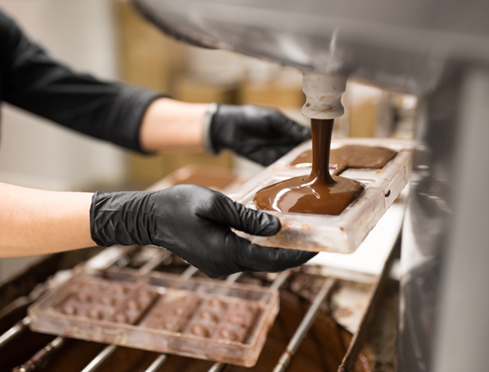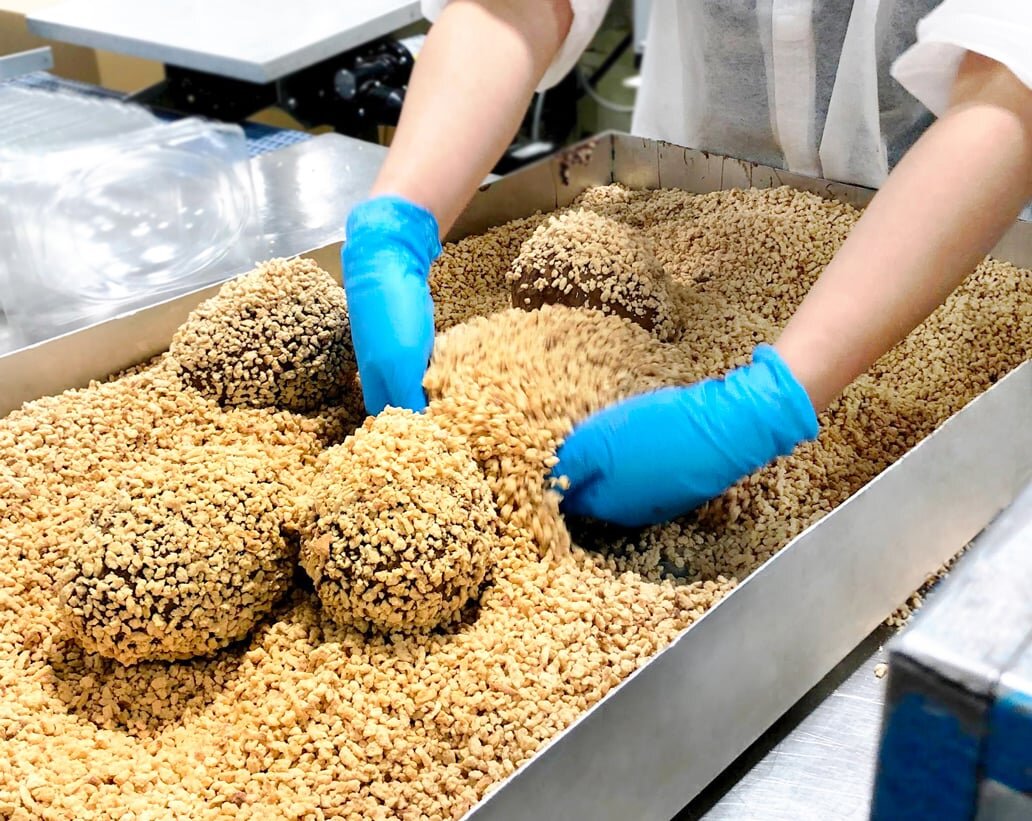Introduction
In today's busy globe, the demand for convenient as well as ready-to-eat foodstuff is on the increase. This has led to an enhanced reliance on contract food manufacturing, where business contract out the manufacturing of their food to customized producers. Nevertheless, one facet that is usually forgotten in the contract manufacturing process is reliable food storage space as well as circulation. In this short article, we will certainly explore the food contract manufacturing relevance of efficient food storage space and also circulation in contract manufacturing and also its influence on the total high quality and also success of food products.
The Duty of Contract Food Manufacturing in Australia
Australia has a prospering food sector, with a variety of regional and international brand names dealing with the diverse preferences and preferences of consumers. Contract food manufacturing plays a vital duty in this industry by supplying business with the essential sources, know-how, and also facilities to successfully generate their food products. From little start-ups to huge firms, numerous services look to acquire makers to bring their cooking productions to life.
Contract Food Production in Brisbane: A Hub for Innovation
Brisbane, the funding city of Queensland, is recognized for its vivid food scene and also cutting-edge culinary offerings. It comes as no surprise that contract food manufacturing has actually grown in this region. With cutting edge facilities and a competent workforce, contract food suppliers in Brisbane are well-equipped to handle the production needs of different organizations. Whether it's establishing new dishes or scaling up manufacturing, these suppliers play a crucial duty in bringing scrumptious food to customers' plates.
Ensuring Top quality: The Trick to Successful Agreement Food Manufacturing
When it involves contract food manufacturing, making certain product quality is paramount. Manufacturers need to adhere to stringent standards and also guidelines established by authorities such as the Australian Food Criteria Code as well as Excellent Production Practices (GMP). From active ingredient sourcing to manufacturing procedures, every action should be meticulously planned and also carried out to preserve the best criteria. This not only assures customer satisfaction but also aids construct trust as well as trustworthiness for both the agreement manufacturer as well as the brand they are generating for.
The Challenges of Food Storage Space in Agreement Manufacturing
Efficient food storage space is an essential facet of agreement production. The correct storage space of raw materials, components, and also ended up items is important to keep their high quality and also quality. However, this can be difficult, especially when handling subject to spoiling items or large amounts of supply. Factors such as temperature control, packaging honesty, as well as supply monitoring play a vital duty in making sure that food products stay safe for consumption throughout the supply chain.
Overcoming Storage Obstacles: Innovation as well as Development at Play
In current years, improvements in modern technology have transformed the way food is stored and also distributed in contract manufacturing. From cutting edge refrigeration systems to innovative inventory management software program, producers currently have accessibility to devices that can enhance their procedures and also make sure optimum storage space problems. These technical technologies not only improve food safety however additionally enhance effectiveness as well as lower wastefulness, eventually benefiting both the supplier and completion consumer.
The Relevance of Effective Food Distribution
Efficient food circulation is one more vital element of effective agreement production. As soon as the food products are made as well as kept properly, they need to reach their desired destinations quickly. Timely delivery guarantees that the products remain fresh and satisfy consumer assumptions. Additionally, reliable circulation additionally decreases expenses associated with transportation and logistics while making the most of total productivity.
From Farm to Fork: The Journey of Food Products
The journey of food products from farm to fork includes several stages, each calling for careful planning and also execution. Let's take a more detailed take a look at each step involved in this process:
Sourcing Raw Materials: Contract food producers function very closely with distributors to source high-grade basic materials for their products. This includes everything from fresh fruit and vegetables to flavors, condiments, and packaging materials.
Food Production: Once the raw products are sourced, the contract maker follows a set recipe as well as manufacturing procedure to develop the wanted food product. This entails numerous techniques such as food preparation, cooking, blending, and also packaging.
Quality Control: Throughout the manufacturing procedure, quality control actions are executed to ensure that the ended up item satisfies all security and also quality standards. This includes normal inspections, testing, and adherence to governing requirements.
Food Packaging: After the item is produced, it is very carefully packaged to maintain its freshness and also honesty during transportation as well as storage space. Agreement manufacturers frequently supply customized product packaging options customized to fulfill the certain needs of their clients.
Storage and also Distribution: As soon as packaged, the food products are stored in ideal conditions to preserve their quality. From temperature-controlled storage facilities to effective logistics networks, agreement suppliers make certain that the items are dispersed successfully as well as reach their destinations on time.
FAQs
What is contract food manufacturing? Contract food manufacturing refers to outsourcing the manufacturing of food products to specialized makers. This enables businesses to concentrate on various other facets such as marketing and also circulation while guaranteeing high-grade items for their customers.


Why do firms choose contract food manufacturing in Australia? Companies select contract food manufacturing in Australia for numerous factors, consisting of cost-effectiveness, accessibility to customized knowledge, conformity with governing criteria, and scalability of production.
What are the benefits of agreement food manufacturing? The benefits of contract food manufacturing consist of decreased capital investment, access to sophisticated innovations as well as equipment, raised manufacturing effectiveness, faster time-to-market, and versatility in conference transforming market demands.

What is the duty of food packaging in agreement manufacturing? Food packaging plays an essential duty in contract manufacturing as it guarantees product safety and security and also prolongs service life. It also functions as an advertising tool by providing details concerning the item and boosting its visual appeal.
How essential is food safety and security in agreement manufacturing? Food safety is of utmost significance in agreement manufacturing. Abiding by rigorous food safety criteria ensures that the products are risk-free for usage and also helps build customer trust.
How does efficient food storage and circulation influence the success of contract manufacturing? Reliable food storage space and distribution play a substantial duty in the success of agreement manufacturing. They guarantee that foodstuff remain fresh, reach customers promptly, and also keep their high quality throughout the supply chain.
Conclusion
Efficient food storage and also distribution are essential parts of successful agreement manufacturing. From ensuring product quality to decreasing wastefulness and also conference customer assumptions, every element of the supply chain plays a considerable function in supplying safe and also premium food to consumers. By leveraging technological innovations, adhering to regulative criteria, as well as focusing on customer fulfillment, contract manufacturers can improve their competitiveness on the market while adding to the total development of the Australian food industry.